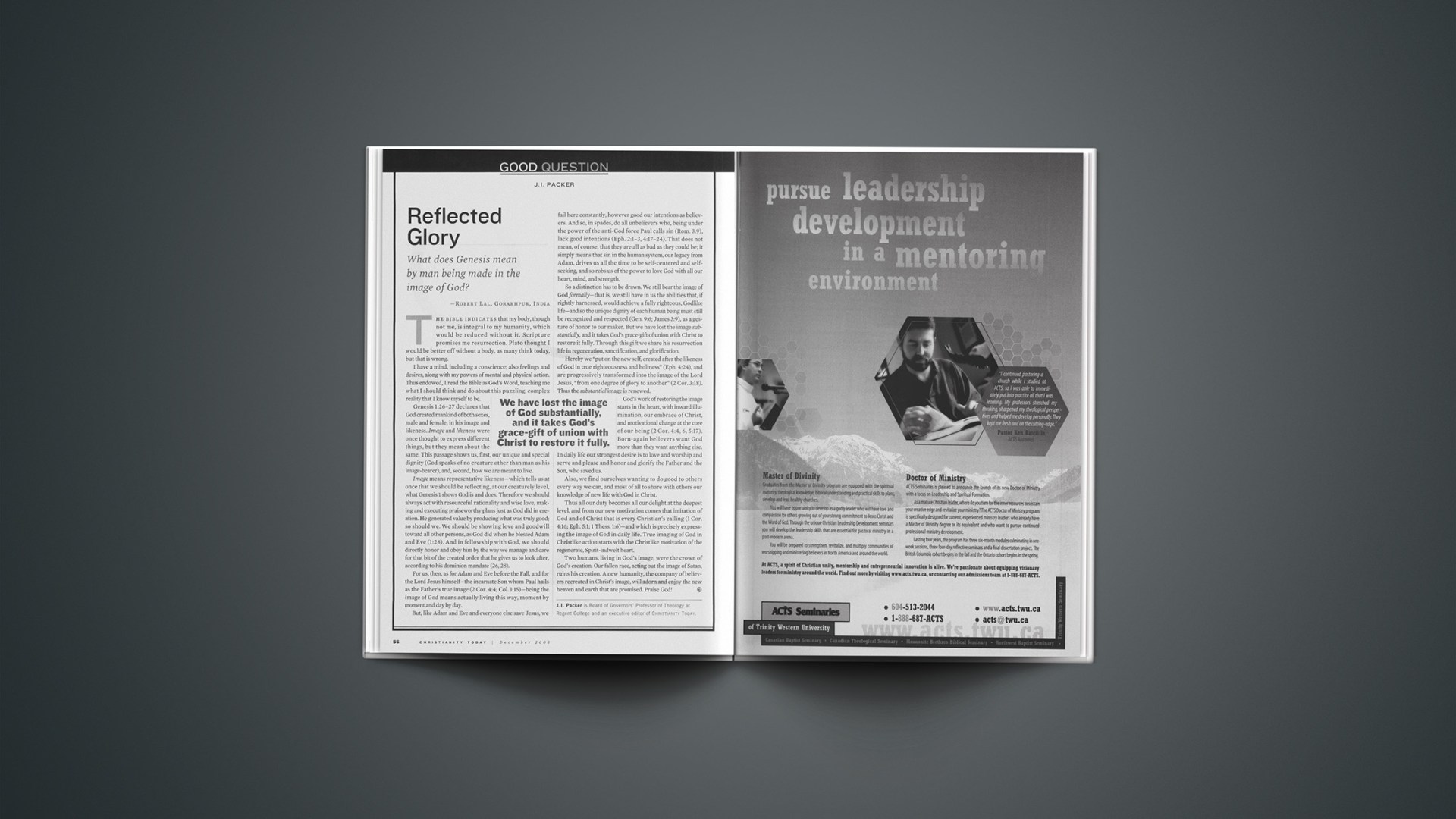The bible indicates that my body, though not me, is integral to my humanity, which would be reduced without it. Scripture promises me resurrection. Plato thought I would be better off without a body, as many think today, but that is wrong.
I have a mind, including a conscience; also feelings and desires, along with my powers of mental and physical action. Thus endowed, I read the Bible as God's Word, teaching me what I should think and do about this puzzling, complex reality that I know myself to be.
Genesis 1:26-27 declares that God created mankind of both sexes, male and female, in his image and likeness. Image and likeness were once thought to express different things, but they mean about the same. This passage shows us, first, our unique and special dignity (God speaks of no creature other than man as his image-bearer), and, second, how we are meant to live.
Image means representative likeness—which tells us at once that we should be reflecting, at our creaturely level, what Genesis 1 shows God is and does. Therefore we should always act with resourceful rationality and wise love, making and executing praiseworthy plans just as God did in creation. He generated value by producing what was truly good; so should we. We should be showing love and goodwill toward all other persons, as God did when he blessed Adam and Eve (1:28). And in fellowship with God, we should directly honor and obey him by the way we manage and care for that bit of the created order that he gives us to look after, according to his dominion mandate (26, 28).
For us, then, as for Adam and Eve before the Fall, and for the Lord Jesus himself—the incarnate Son whom Paul hails as the Father's true image (2 Cor. 4:4; Col. 1:15)—being the image of God means actually living this way, moment by moment and day by day.
But, like Adam and Eve and everyone else save Jesus, we fail here constantly, however good our intentions as believers. And so, in spades, do all unbelievers who, being under the power of the anti-God force Paul calls sin (Rom. 3:9), lack good intentions (Eph. 2:1-3, 4:17-24). That does not mean, of course, that they are all as bad as they could be; it simply means that sin in the human system, our legacy from Adam, drives us all the time to be self-centered and self-seeking, and so robs us of the power to love God with all our heart, mind, and strength.
So a distinction has to be drawn. We still bear the image of God formally—that is, we still have in us the abilities that, if rightly harnessed, would achieve a fully righteous, Godlike life—and so the unique dignity of each human being must still be recognized and respected (Gen. 9:6; James 3:9), as a gesture of honor to our maker. But we have lost the image substantially, and it takes God's grace-gift of union with Christ to restore it fully. Through this gift we share his resurrection life in regeneration, sanctification, and glorification.
Hereby we "put on the new self, created after the likeness of God in true righteousness and holiness" (Eph. 4:24), and are progressively transformed into the image of the Lord Jesus, "from one degree of glory to another" (2 Cor. 3:18). Thus the substantial image is renewed.
God's work of restoring the image starts in the heart, with inward illumination, our embrace of Christ, and motivational change at the core of our being (2 Cor. 4:4, 6, 5:17). Born-again believers want God more than they want anything else. In daily life our strongest desire is to love and worship and serve and please and honor and glorify the Father and the Son, who saved us.
Also, we find ourselves wanting to do good to others every way we can, and most of all to share with others our knowledge of new life with God in Christ.
Thus all our duty becomes all our delight at the deepest level, and from our new motivation comes that imitation of God and of Christ that is every Christian's calling (1 Cor. 4:16; Eph. 5:1; 1 Thess. 1:6)—and which is precisely expressing the image of God in daily life. True imaging of God in Christlike action starts with the Christlike motivation of the regenerate, Spirit-indwelt heart.
Two humans, living in God's image, were the crown of God's creation. Our fallen race, acting out the image of Satan, ruins his creation. A new humanity, the company of believers recreated in Christ's image, will adorn and enjoy the new heaven and earth that are promised. Praise God!
J. I. Packer is Board of Governors' Professor of Theology at Regent College and an executive editor of Christianity Today.










